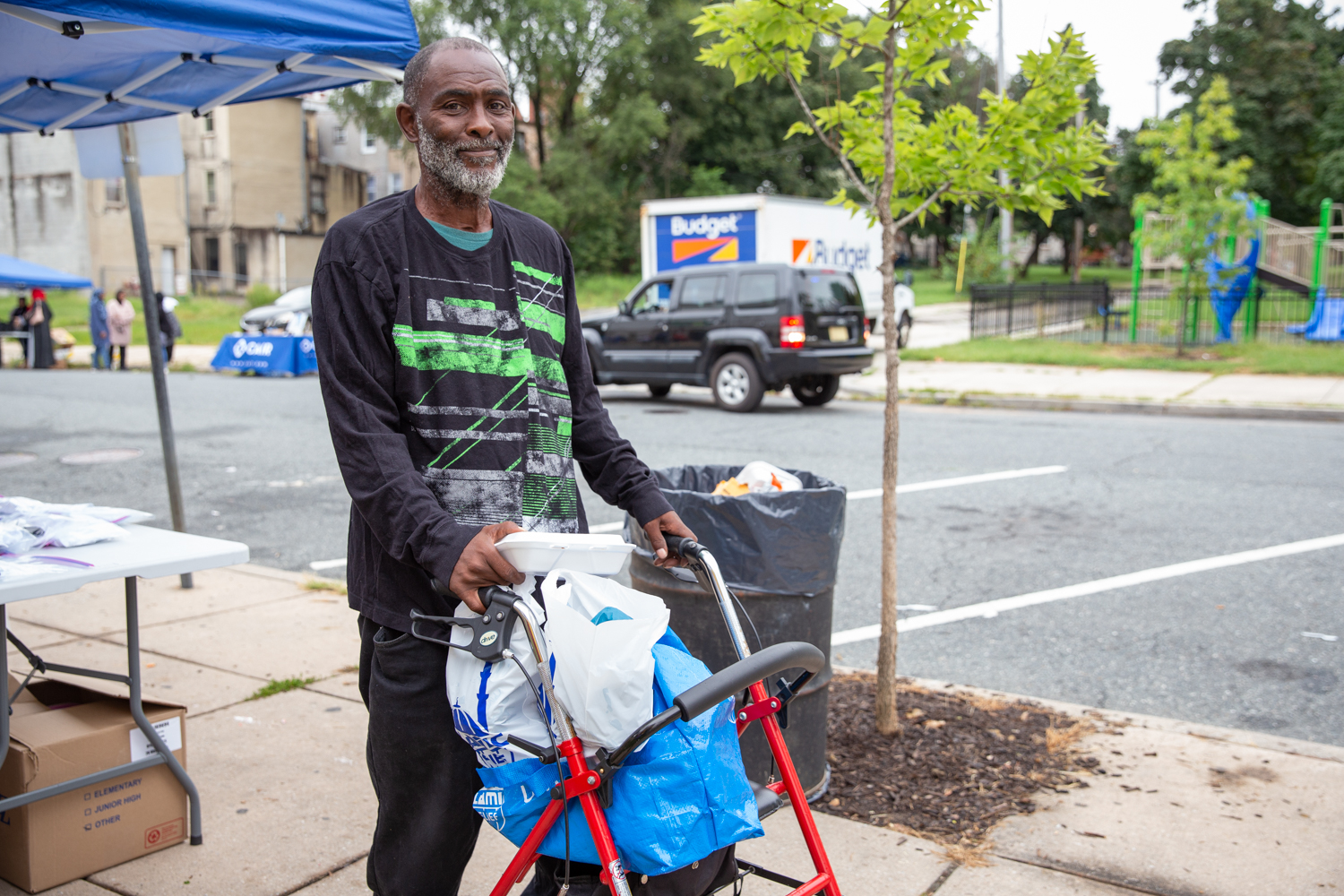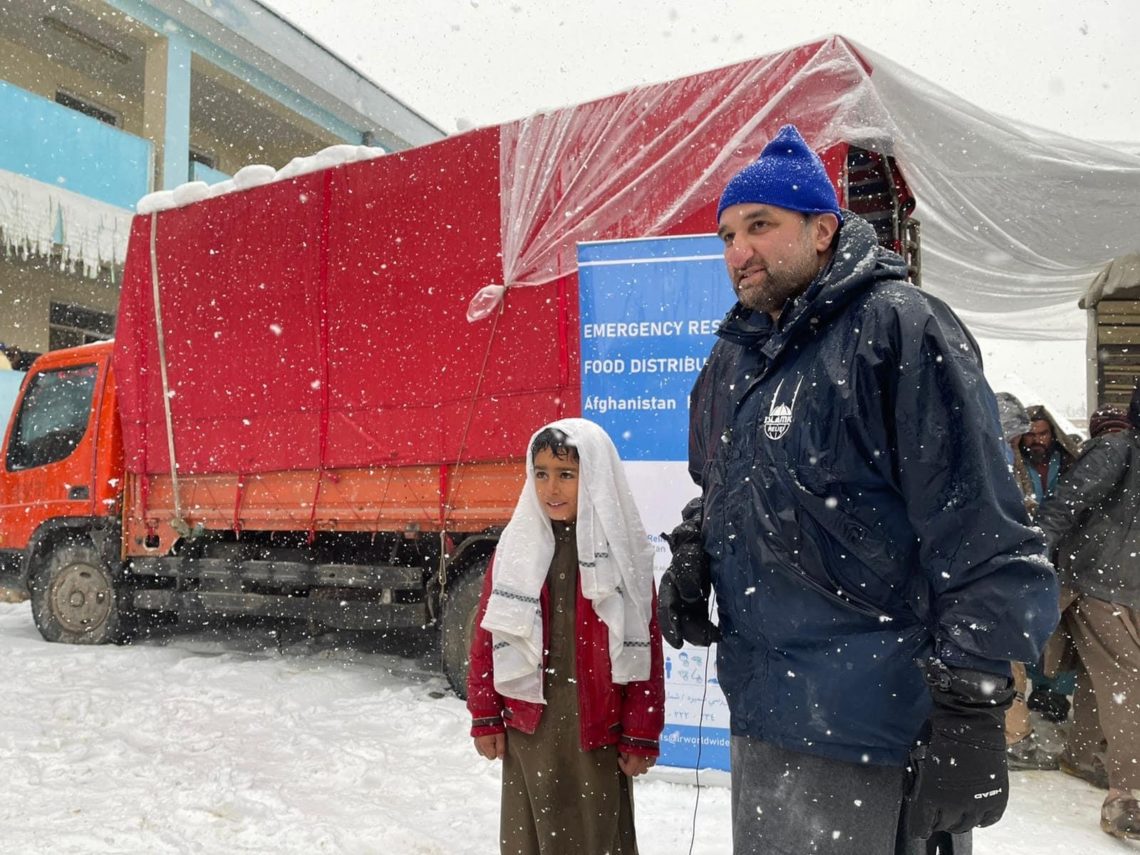
Afghanistan Disaster, from The Ground
IRUSA President Anwar Khan returns from Afghanistan
In 2021, the rapid shift of power in Afghanistan left a vacuum for chaos among many communities still in recovery from a decades long war occurring right outside their front doors. Internally Displaced Persons (IDPs) filled airport landing strips and even went as far as hanging from airplanes scheduled to exit the country. The U.S. has welcomed over 70,000 refugees since. IRUSA has mobilized volunteers and family services resources to assist those experiencing losing home and homeland in such a rapid manner. Islamic Relief USA was one of the first humanitarian organizations to mobilize cultural competent resources for Afghans arriving as well as immediately deploying emergency aid to survivors in the country. Khan visited Afghanistan in January to assess ground-level conditions and appeal to donors the world over to aid the millions who’ve gone food insecure and shell-shocked amongst, many other disheartening realities. The following interview was conducted directly after he returned to U.S. soil.
Q. So you’ve been to Afghanistan before and you’ve just seen the level of devastation. What struck you the most about this visit?
A: It is my belief, and I say this with a heart that is filled with countless emotions after seeing what we saw in Afghanistan, that what they are experiencing is completely unnecessary. When children are dying we can never have proper reasons, but these children are truly dying for no reason. As I reflect on my first trip and the assurances we were given, as to the work towards stability, and the effort by stakeholders to ensure that change would take place. I’m seeing now that those promises have terribly failed to reach their mark.When the war happened, we were told that after it, the food shortages, the violence, would never happen again, that we were now building schools for the girls. But now, we have to ask, how does it help girls go to school by destroying the economy of Afghanistan? And how can we do any sustainable service when their own parents have no jobs? And if they do have money, they can’t get enough of it out of the bank account. Beyond that, many of these children are on the verge of starving. It took everything out of me to go back there–knowing that it would break my heart. Over $1 trillion of taxpayer money has been spent.
Someone from one of the families we met said they used to have three meals a day, but, now, if they don’t get food aid from humanitarian groups, they are barely getting even one meal a day. What’s that meal? What are we giving? Flour, sugar, salt, oil, some lentils, and rice.
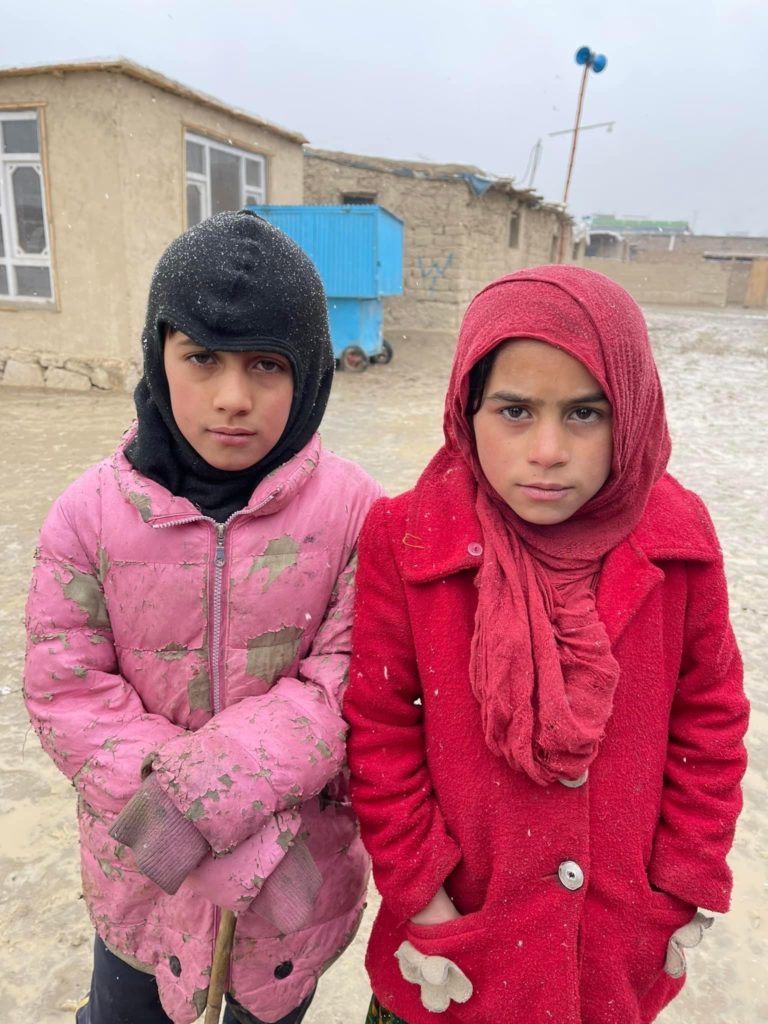
Q. You haven’t had a whole lot of time to collect your thoughts. What are your immediate reactions to what the humanitarian community has to do in this overwhelming crisis, and do we truly know the response that’s needed?
A. To understand what we can possibly do in Afghanistan, we can’t begin with the interventions themselves. We have to know that there is an economic anchor drowning the public there. Since the change in government, $10 billion of funds were frozen last year. I don’t care what nation you represent, stopping the cash flow of money going in will have the economy inevitably collapse.
We are witnessing that collapse in our worldview. But, with my own eyes, I encountered the sunken eyes of children who were malnourished, and the faces of parents holding tight to their dignity despite having lost their jobs. Patients hoped for medicine and families were waiting for roofs over their heads. On top of that, a lot of the international aid was stopped: nearly 75% of the civil servants, the people who work in the government, were being paid by international aid. The bulk of the government workers were working in education and in health. We’ve got about 40 million people in the country, 98% of whom are now food insecure.
At the very time you need a massive influx of money, you’ve got billions frozen. You’ve got individuals who are trying to support other community members on top of their own families and extended families. One job for an Afghan person now has to provide food for 21 to 24 people. I couldn’t believe it the first time I heard it. I heard it again and again and again and again. 21 to 24 people!
“One job for an Afghan person now has to provide food for 21 to 23 people. I couldn’t believe it the first time I heard it.“
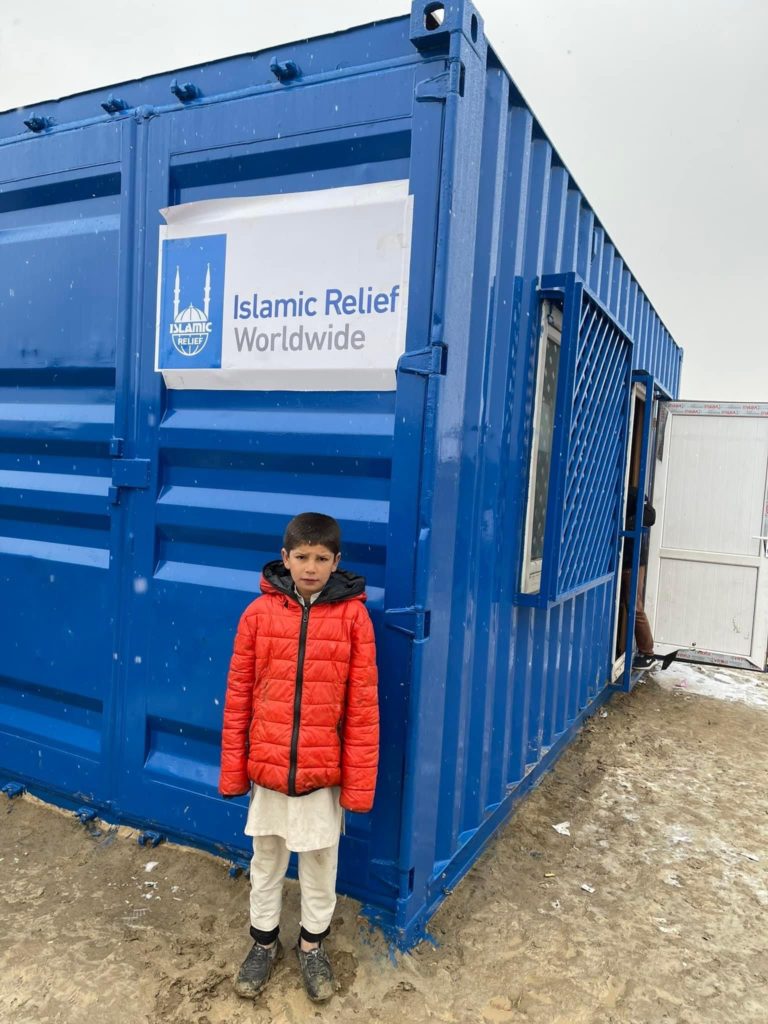
Q. Who remains the most vulnerable at this time?
A. If you are disabled you are probably amongst the first to be tragically affected by the developments in Afghanistan. This is something we’ve known all along and have tried to help. In the very beginning, I noticed that many of the people we’re helping have disabled kids. So if you have a disabled kid, are you able to go out and work at whatever employment may be left there? No. You have to choose the care of your child over going to work.
We were privileged to meet a man with a daughter and a son, both young, that were born with leg disabilities. While speaking with them we learned that the children also were legally blind. The amount of care in general their condition demands from the father was high, and he was responsible for several more children. This man was a retired government officer suffering from his own PTSD developed in the line of duty. So he had to retire. And now he’s taking care of his family of over seven people on less than a quarter-a-day per person.
“In the very beginning, I noticed that many of the people we’re helping have disabled kids.“
Q. IRUSA’s work in Afghanistan has had to have a robust healthcare component to it from to time. What does that work look like now?
A. When we went to the healthcare point at the IDP camp, masha’Allah, there was a phenomenal midwife working, Maria, and there’s a doctor there also. The both of them together are seeing hundreds of patients with little to no assistance every other work day. Even though patients are aware they are understaffed they can’t forget their own needs. They’ve said that unfortunately they are only here seldom. They’re the only medical help for thousands of people. It makes sense why they need them there every day. Now the nature of the project is that the caretakers have to go to different camps. This is what limits availability.
There is also a challenge with the government hospitals. Patients have asked about getting referrals to the government hospitals, because without those referrals, they won’t be seen. But they need the money to go to those same hospitals. Finally, the issue gets compounded when the price of medicine is involved. So the midwife, Maria, told us, “We need you to give us money for medicine.” We have to be able to do more. The team is working out of a cargo container in the dead cold with snow coming down. So I’m seeing the doctor and the midwife working there in the cold. And do you know what they asked? Nothing for themselves. They just asked that we give them money to get medicine for the patients.
“We have to be able to do more.“
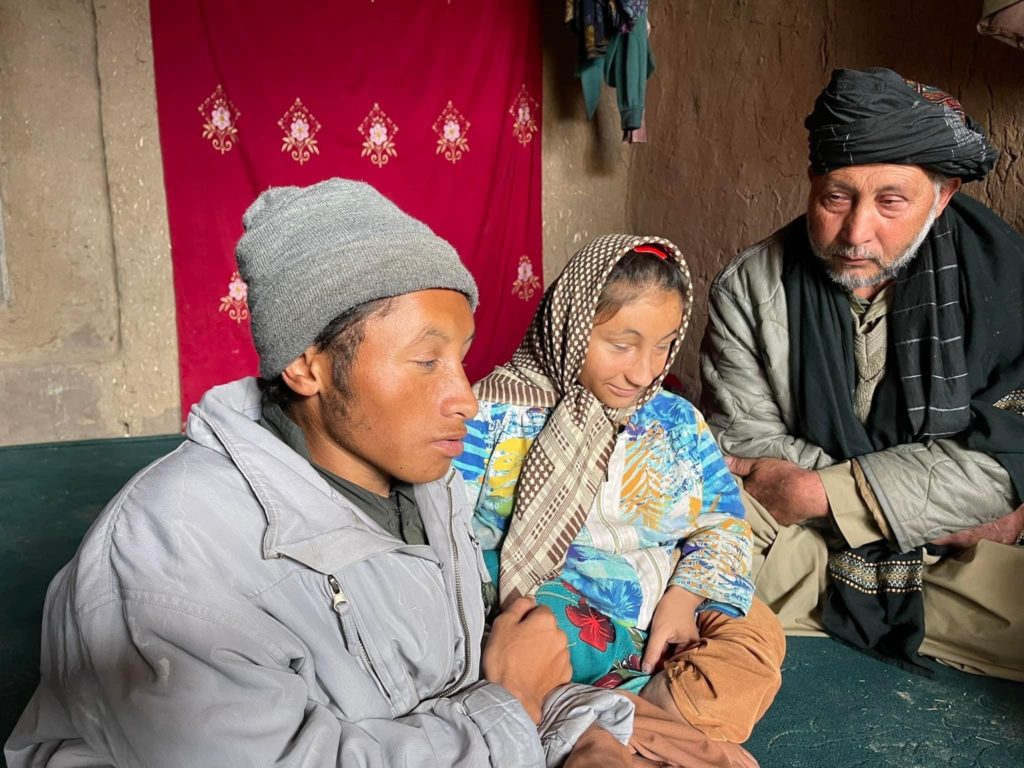
Q. We have two questions left and the this one is fairly easy to answer I hope. Have orphans programs been able to move forward in light of all that’s happened?
A. Yes. I was able to meet with a family who’s currently in the orphan program. The mother said that her husband was killed in an explosion. That same explosion disabled her oldest son. In one of the pictures of them, you can see they were sitting around some sort of heating system. I guess we could call it a heating system, and then they put their legs under there. Then the whole family stays warm. I said, “What difference did the sponsorship make for you?” She said, “Before the sponsorship, I used to only be shielded from the cold by a curtain. Now I have four walls and a roof. When it was cold, we put hot water in a bucket. And then we put a blanket over the bucket, we put our feet next to the hot water and tried to stay as warm as we could with our feet. Now our whole bodies can stay warm. Thanks to the money you’ve given us, I was able to buy this heating system. Now our whole bodies can stay warm. Thanks to the money you’ve given us, I was able to buy this heating system.”
“Now our whole bodies can stay warm. Thanks to the money you’ve given us, I was able to buy this heating system.”
Q: There have been many times where you return from the field you can remind us of all the beautiful work taking place. Unfortunately, this time you have to bring sobriety to us all about this. Where can we find hope?
A: I’m not the same person that went there 21 years ago, this is obvious. I’ve learned so much more about how we can truly render humanitarian support in a way that we truly move the needle forward. Our work isn’t only about immediate needs. I always have hope. Some of these people haven’t received money for so long due to the banking freeze for months, but they’re not desperate people; the dignity they have is unmatched. I sat with a man and his disabled daughter for some time. Before I came, I was at the hotel looking for something to give them when I met them.
You know, sometimes when you go to these hotels, they give you soda and they give you chips or snacks and charge it to the room. I made sure I put it in my jacket and I gave him the soda and the chips. You know what he did? This man who is hungry. He gave it to his blind, disabled, 22-year-old daughter and she had a big smile on her face. But she can’t see the chips and she can’t see the drink. But you could tell that she was the apple of his eye. And she had never physically seen her dad do small things like that but he’s been doing this all her life. And she could feel it. Small things like the dignity of people that they are in so much poverty and yet they’re not begging, they are thinking of one another.
I’ve returned with their stories, not to ask for anyone’s pity, let me make that clear. I had to bring their stories to light because without them, we are forcing our brothers and sisters to look at numbers and data, but there is a life lived behind each digit.
“I’ve returned with their stories, not to ask for anyone’s pity, let me make that clear.”





